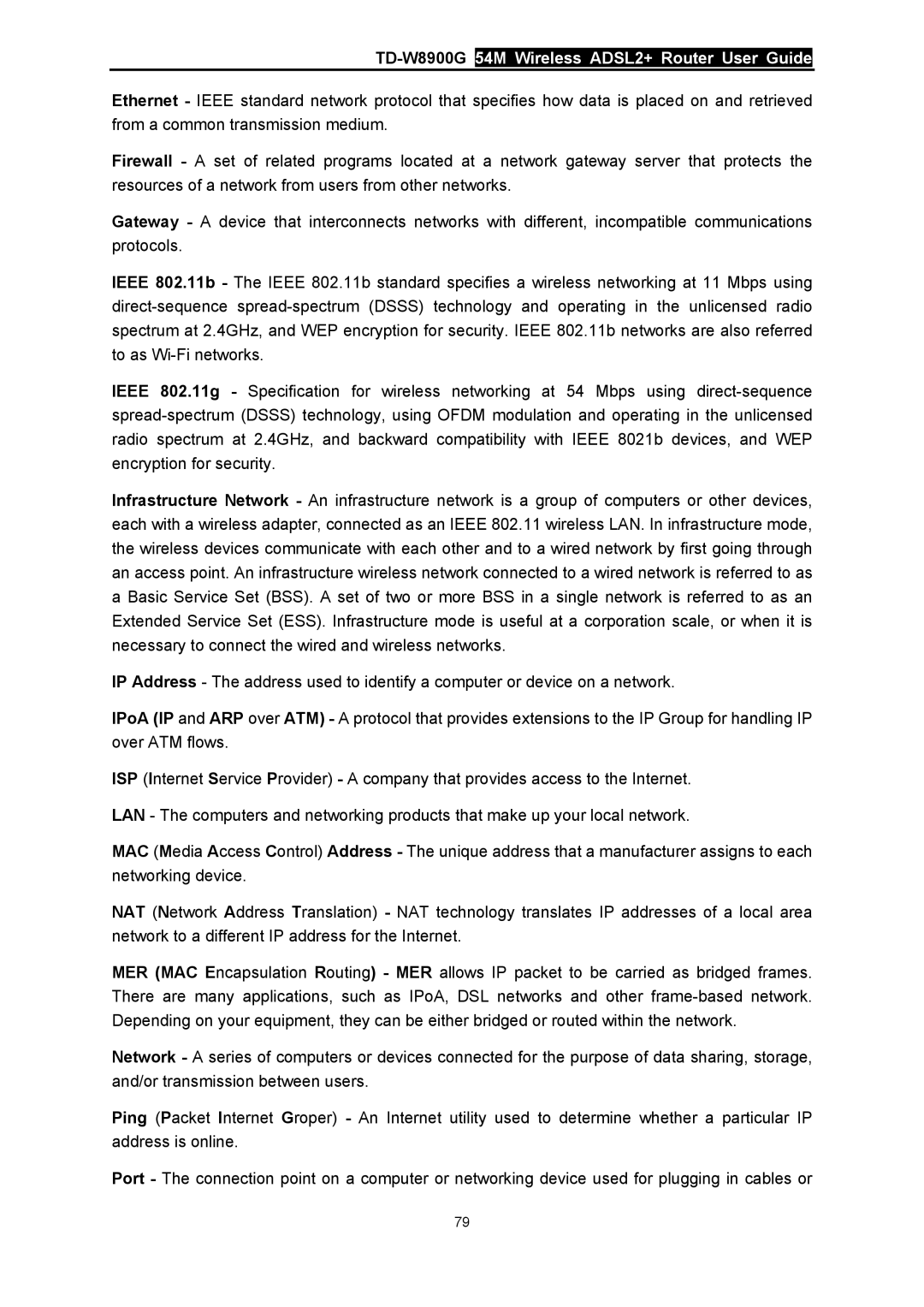TD-W8900G 54M Wireless ADSL2+ Router User Guide
Ethernet - IEEE standard network protocol that specifies how data is placed on and retrieved from a common transmission medium.
Firewall - A set of related programs located at a network gateway server that protects the resources of a network from users from other networks.
Gateway - A device that interconnects networks with different, incompatible communications protocols.
IEEE 802.11b - The IEEE 802.11b standard specifies a wireless networking at 11 Mbps using
IEEE 802.11g - Specification for wireless networking at 54 Mbps using
Infrastructure Network - An infrastructure network is a group of computers or other devices, each with a wireless adapter, connected as an IEEE 802.11 wireless LAN. In infrastructure mode, the wireless devices communicate with each other and to a wired network by first going through an access point. An infrastructure wireless network connected to a wired network is referred to as a Basic Service Set (BSS). A set of two or more BSS in a single network is referred to as an Extended Service Set (ESS). Infrastructure mode is useful at a corporation scale, or when it is necessary to connect the wired and wireless networks.
IP Address - The address used to identify a computer or device on a network.
IPoA (IP and ARP over ATM) - A protocol that provides extensions to the IP Group for handling IP over ATM flows.
ISP (Internet Service Provider) - A company that provides access to the Internet.
LAN - The computers and networking products that make up your local network.
MAC (Media Access Control) Address - The unique address that a manufacturer assigns to each networking device.
NAT (Network Address Translation) - NAT technology translates IP addresses of a local area network to a different IP address for the Internet.
MER (MAC Encapsulation Routing) - MER allows IP packet to be carried as bridged frames. There are many applications, such as IPoA, DSL networks and other
Network - A series of computers or devices connected for the purpose of data sharing, storage, and/or transmission between users.
Ping (Packet Internet Groper) - An Internet utility used to determine whether a particular IP address is online.
Port - The connection point on a computer or networking device used for plugging in cables or
79
